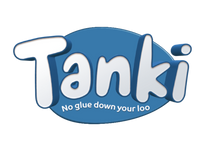The Science of Eco-Friendly Toilet Paper: Tanki's Planet-Saving Toilet Tissue
With the ever-growing environmental challenges our planet faces, it has become increasingly important to rethink our everyday choices, starting with our household items. One such product that deserves attention is toilet paper. Recently, eco-friendly toilet paper like Tanki's unique tissue has been gaining popularity due to its reduced environmental impact compared to traditional toilet paper.
In this article, we will delve into the science behind eco-friendly toilet paper and explore the various ways Tanki's toilet tissue contributes to a healthier planet. From saving trees and conserving energy to reducing water consumption and minimising harmful waste production, we will highlight the significance of embracing sustainable alternatives to traditional toilet paper. These eco-friendly options play an essential role in preserving our planet’s natural resources and reducing our overall carbon footprint, enabling us to make a positive impact on the environment one roll at a time. Join us as we uncover the environmental marvel that is Tanki's glue and plastic-free toilet tissue, and understand its crucial part in the global quest for sustainability.
The Problem with Conventional Toilet Paper
Before diving into the science behind eco-friendly toilet paper, it's essential to understand the issues surrounding conventional toilet paper. Traditional toilet paper production involves deforestation, excessive water usage, environmental pollution from chemicals, and significant energy consumption. Furthermore, plastic packaging contributes to plastic pollution, adversely impacting our oceans and wildlife.
How Tanki's Eco-Friendly Toilet Tissue Addresses Environmental Concerns
Tanki's unique tissue product tackles many of the issues associated with conventional toilet paper. By adopting sustainable production methods and utilising alternative materials, Tanki has created a planet-saving toilet tissue that benefits the environment, as well as consumers.
1. Saving Trees and Encouraging Sustainable Forestry Practices
Tanki's toilet tissue is made from responsibly sourced raw materials that do not contribute to deforestation. Unlike traditional toilet paper, which relies heavily on cutting down trees, Tanki uses sustainable fibres, such as recycled paper or alternative plant sources like bamboo, to create its eco-friendly product. This shift towards responsible forestry practices is crucial for preserving our planet's valuable forests and the numerous ecosystem services they provide, including climate regulation, water cycle maintenance, and habitat supply for biodiversity (Source: https://www.worldwildlife.org/threats/deforestation-and-forest-degradation).
2. Reducing Water Consumption
One of the least considered yet significant environmental concerns surrounding toilet paper production is water consumption. Traditional toilet paper manufacturing requires copious amounts of water during the pulping process to break down wood fibres. In contrast, Tanki's eco-friendly toilet tissue production consumes far less water by using sustainable fibres that require less processing. Consequently, Tanki's attention to water conservation contributes to a reduced environmental impact, as less water wastage occurs during manufacturing.
3. Eliminating Harmful Chemicals and Pollution
Conventional toilet paper production often involves the use of harmful chemicals, like chlorine, for bleaching purposes. These chemicals can release toxic substances into the environment, polluting waterways, and damaging ecosystems. Tanki's toilet tissue addresses this issue by using safe, environmentally friendly alternatives for whitening purposes, such as oxygen, ozone, or hydrogen peroxide. These methods significantly reduce chemical pollution and protect ecosystems from the harmful effects of bleaching agents (Source: https://www.greenbiz.com/article/behind-scenes-your-toilet-paper-whats-bleach-got-do-it).
4. Decreasing Energy Consumption
Energy consumption is another concern in traditional toilet paper production, with the manufacturing process using significant amounts of energy for processes like pulping, drying, and packaging. Tanki's eco-friendly toilet tissue, on the other hand, employs energy-efficient manufacturing procedures, minimising the amount of energy consumed during production. By reducing energy consumption, Tanki contributes to a smaller carbon footprint and a greener, more sustainable product.
5. Glue-Free Production
Most conventional toilet papers have a thin layer of glue that holds the tissue layers together. This glue can cause problems when flushed, such as pipe blockages and sewer system issues. Tanki's toilet tissue, however, is unique – it is produced using a glue-free technique, which not only results in an easily flushable product but also reduces the chemicals used during the manufacturing process. By eliminating glue from their toilet tissue, Tanki creates a product that is better for both consumers and the environment.
6. Plastic-Free Packaging
One issue that plagues most household products, including traditional toilet paper, is plastic packaging. Plastic pollution has become a global environmental crisis, severely harming our marine life and polluting our oceans. Tanki's eco-friendly toilet tissue addresses this concern by using plastic-free packaging materials, such as compostable, biodegradable alternatives, significantly reducing the product's contribution to the plastic pollution problem.
7. Supporting the Circular Economy
The principles of the circular economy advocate for waste reduction and circulation of resources while maximising the lifetime of products. Tanki's eco-friendly toilet tissue embodies these principles by incorporating recycled materials and reducing waste throughout its production. This support for a circular economy fosters a sustainable production model and contributes to a planet-saving toilet tissue product.
By implementing these environmentally conscious methods and materials, Tanki's unique tissue product addresses many of the issues associated with conventional toilet paper production. Adopting eco-friendly toilet paper like Tanki significantly benefits the environment by conserving trees, water, and energy while reducing waste and harmful pollution. This shift towards greener alternatives not only helps to protect our planet but also demonstrates the importance of each individual's choices in the quest for a sustainable future.
Adopt Eco-Friendly Toilet Tissue for a Sustainable Future
Tanki's unique tissue product exemplifies the science behind eco-friendly toilet paper, showcasing the numerous ways it benefits our environment and contributes to a healthier planet. By adopting sustainable production methods, eliminating harmful chemicals and materials, and embracing a circular economy, Tanki has developed a toilet tissue product that addresses the environmental concerns associated with conventional toilet paper.
Making the switch to Tanki's biodegradable toilet tissue is a small yet meaningful step towards a more sustainable lifestyle. Each conscious decision to choose sustainable household products like Tanki helps to conserve our natural resources, reduces our carbon footprint, and demonstrates our commitment to preserving the environment for future generations.
